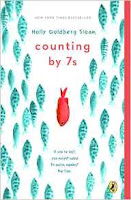This off-season, I've decided that most of my reading units need an overhaul. They're not awful, but they don't pull things together as well as they could. This unit is for my fifth grade gifted reading class, so it would serve for sharp fifth graders or for sixth graders.
I've spent some time working with the Understanding by Design model, and I like what I see. The question to begin with it, "What do I want my kids to be able to do?"
Enter The Westing Game, one of the most awesome mystery stories from childhood. I've been using it to teach mystery genre, but there's a lot more going on in that book. A whole lot more. There are themes of need, love and redemption running throughout, all of which warrant a closer look.
Oh, yeah,it's also a lot of fun!
What do I want my kids to be able to do? To recognize, as they get ready for middle school, that people's behavior is driven by need, or, more specifically, unmet needs. I want them to see that the need and its ensuing behavior creates cycles,some of which are unhealthy, both in literature and IRL.
So, I set my central theme as 'need' with my understanding as 'Need drives behavior.' Next, what can my kids do at the end, that they couldn't have done before, to show that they get it? I've picked two things:
1. Create a podcast, using the cast of characters of their book club books, in which the main character and important minor characters are interviewed and they explain how a need left them stuck in a cycle and how the cycle was broken.
2. Create a piece of realistic fiction in which the protagonist's behavior shows cyclic patterns of unmet need and breaking that cycle.
The reading I set should lead them to the central understanding, so we're not reading a bunch of mysteries, but working with text that introduces those cycles.
So, with the Westing Game, I'm pairing:
Jack Prelutsky's haiku, "If Not for the Cat"
with it goes the poetry web I made. Snag it here. They'll also do a vocabulary web with 'scarcity'. Find that here.
Before we move on, I'm going to introduce them to Maslow's Hierarchy of need. Remember that from ed psych? It will help them make sense of what we're seeing as we go. This is almost kid-friendly. I'm going to have to doctor it up just a little before putting it on the riso. I totally get that sexual intimacy is on the hierarchy; I just don't feel like dealing with the giggles.
I've put together a Jacob's Ladder for it. Find it here.
Other poems I'm using:
Langston Hughes' "Harlem" ( A lot of people know this as "A Dream Deferred") I've created a Jacob's Ladder for it. We'll do a vocabulary web for 'defer'.
Angela Johnson's "The Other Side" we'll do a poetry web with it.
In pairs, the kids will compare and contrast two very different poems about the same idea.
I'm pulling excerpts from:
A Long Walk to Water - Two first person accounts, one, a girl in present-day Sudan, the other from one of the Lost Boys of the '80s. I'll pull the first chapter and have the kids annotate and another excerpt in which the protagonist is torn between giving some of his water to a dying man or to keep it for himself. (His uncle intervenes.) From that, the kids will do a blog post.
Bad Boy: A Memoir Walter Dean Myers' memoir of growing up in Harlem. I'm pulling two excerpts that show the cyclic pattern of unfulfilled need and behavior and how two teachers helped him to break that cycle.
We'll watch:
God Grew Tired of Us, a documentary about several of the Lost Boys, grow to young men in refugee camps and moving to America. There are a very few small bits I zip past; you might want to preview it before using it.
With younger kids, you could also watch Lilo and Stitch. They're stuck in a behavior rut, too.
Book Club Choices:
Before we wrap up the book clubs to get ready for creating our podcasts, we'll do a Socratic Seminar. The central question will be the central understanding, "How does need drive behavior?" to make sure we're all on the same page-ish before beginning our projects.
I'm scoping out about 25 days for this unit. I think it will lay a good foundation for the rest of the year.
I hope you find this useful and a new way of thinking about an awesome book.
Remember to pin this so you can find it again!










No comments:
Post a Comment